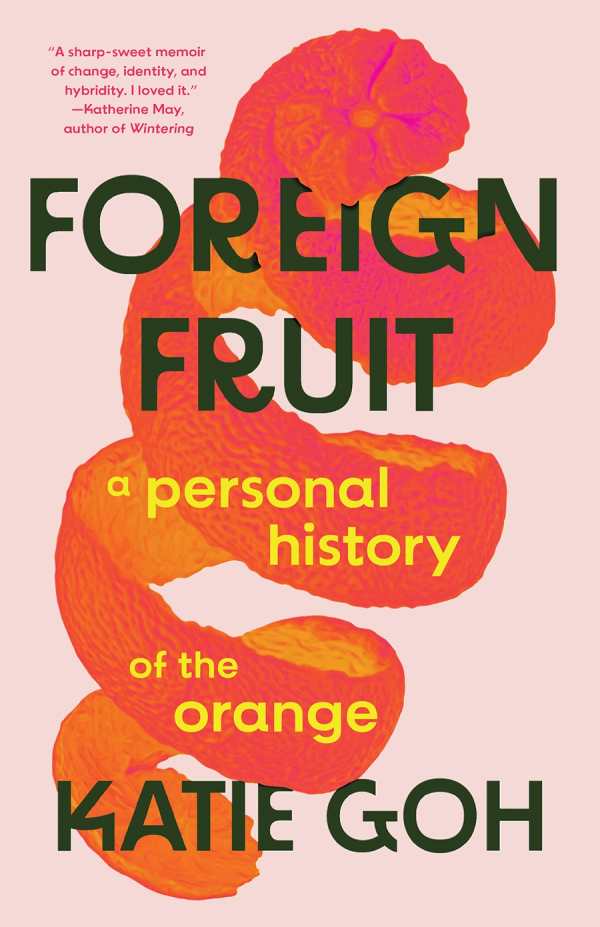Foreign Fruit
A Personal History of the Orange
In Katie Goh’s nimble hybrid memoir Foreign Fruit, the unfolding history of the orange is paralleled with family migrations and anti-Asian racism.
The inciting incident dates to the COVID-19 lockdowns: “The morning after a white man murdered six Asian women, I ate five oranges,” Goh writes. She loops back several times to that horrific shooting spree in Atlanta, recalling her feelings of helplessness. It led to a newfound determination to cherish her Asian identity and commemorate westward movement, and the orange became her totem.
Botanical metaphors abound; citrus trees are a cogent analogue for genealogy. Pilgrimages from Goh’s home in Belfast to her ancestral homelands, China and Malaysia, reminded her that heritage is complicated: “There were roots moving in every direction, old grafting scars and severed branches that I was still learning about.” When both of her grandmothers were diagnosed with cancer, she pondered the potential perils in her family tree too.
Fruit acquires multiple meanings as a “souvenir of history” and mythology with relevance to religion and art. In Kuala Lumpur, Goh observed that “during Lunar New Year, oranges are little flames of hope in the winter darkness.” On trips to Holland and Vienna, she learned about the late seventeenth-century “citrusmania” that saw oranges become a popular motif in paintings and on porcelain, even as luxury greenhouses known as “orangeries” were constructed. Elsewhere, Southern California forms a backdrop for citrus-themed tragedies, as with a massacre of the Chinese community in 1871 and cycles of boom and bust. Goh also notes that orange harvesting often relies on the exploitation of migrant farm workers.
In the end, Foreign Fruit is a piquant memoir that blends personal and social histories. Its political stances are evident throughout, but it also achieves lightness through lyrical symbolism.
Reviewed by
Rebecca Foster
Disclosure: This article is not an endorsement, but a review. The publisher of this book provided free copies of the book to have their book reviewed by a professional reviewer. No fee was paid by the publisher for this review. Foreword Reviews only recommends books that we love. Foreword Magazine, Inc. is disclosing this in accordance with the Federal Trade Commission’s 16 CFR, Part 255.

